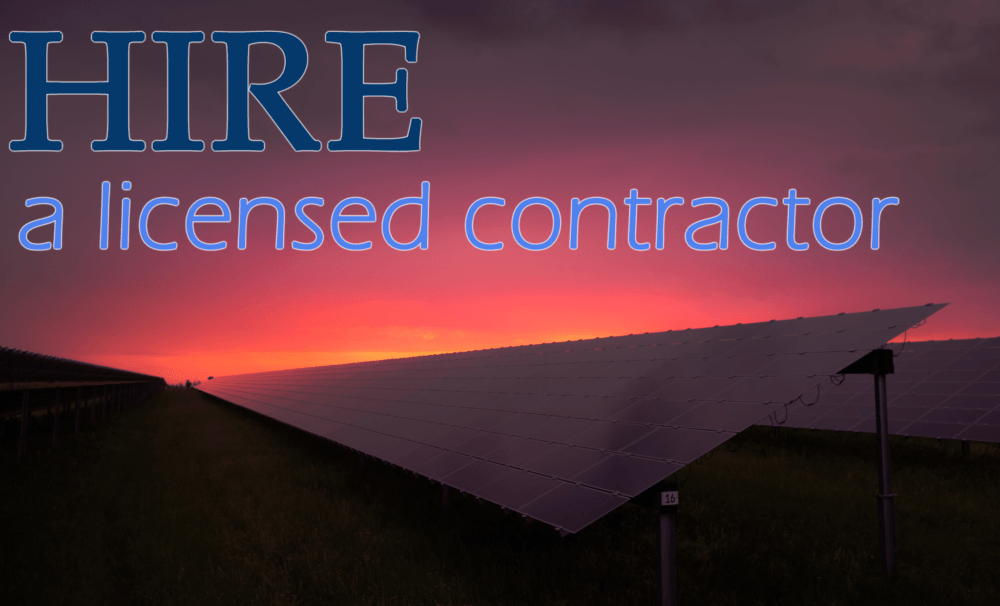Contractor Selection Part 1 – US Solar Institute Educates Homeowners on Choosing Contractors
Advanced Solar Training School Educates Future Solar Consumers
FOR IMMEDIATE RELEASE, Fort Lauderdale, FL, June 2019 – The US Solar Institute, a highly specialized and recognized advanced solar training college, has set out on a new mission to educate future solar consumers: how to select a solar contractor. There are many solar contractors, some are good, some are OK, and some are bad. This post is not to bash any particular solar energy company, but to educate homeowners on how to properly choose a reputable company that will ensure proper and code-compliant installation in a cost-effective and timely manner. For five weeks, we are going to build up on an individual checklist item that you should look for when selecting a contractor, not just for solar, but for any change in your house that requires a permit.
There are several flags that a homeowner should look for before signing a contract, and we will go in detail with all of them. South Florida has a bad reputation when it comes contracting practices and an innumerable number of contractors deserve the fame that they have. So many contractors lie, scam, engage in predatory practices, are incredibly pushy, to name a few. There are five crucial characteristics that differentiate a good, honest, and reliable contractor, from the bad, do-it-fast-, sloppy work solar contractors. The most important factors that we, as a Florida Department of Education licensed college, deem the most important are proper licensure in the trade, workman’s compensation and insurance, in-house team of workers, experience, and reputation. Of the many elements to consider, these five give a homeowner a clear indication of what type of solar energy company they are dealing with.
The first and most important factor to consider is the proper licensure in the trade to do the work. In the state of Florida, the addition of a solar PV or solar thermal system requires a permit to be granted by the city. The solar panel installation company must be able to pull a permit from the city in which the job site is located. This would require the solar energy company to be a state licensed contractor, with the certification abbreviation CVC. The work that a pure solar contractor can do is limited doing the solar attachments to the roof, installation of solar panels, and wiring up until the junction box that leads to the inverter. In other words, a CVC licensed solar contractor can do the structural portion of the work, and the DC wiring; he/she is not allowed to touch the AC wiring part of the job.
Another capability of a Florida licensed solar contractor is the ability to do thermal solar installations. This also requires pulling a permit from the city, and it can be applied to hot water heaters or fool pool heating. Most of this work is plumbing, which is vastly different from solar PV work. Homeowners, if a solar contractor has a lot of experience in solar thermal installation in Florida and not so much experience in soar PV installation, please stay away. Working with water and working with electricity are vastly different, and you want an experienced person doing the work they are known for.
What was explained above is only half of the work that goes into a solar system. In the state of Florida, a city permit for a solar system requires two permits: the electrical permit (master) and the building permit (sub). Only an electrical contractor, abbreviated as EC, has the ability to pull the electrical permit. A solar contractor, CVC, is NOT allowed to pull an electrical permit. Homeowners, if you do not see EC####### on the contractor’s van, ask him/her who is the electrical contractor and do research on that company too.

